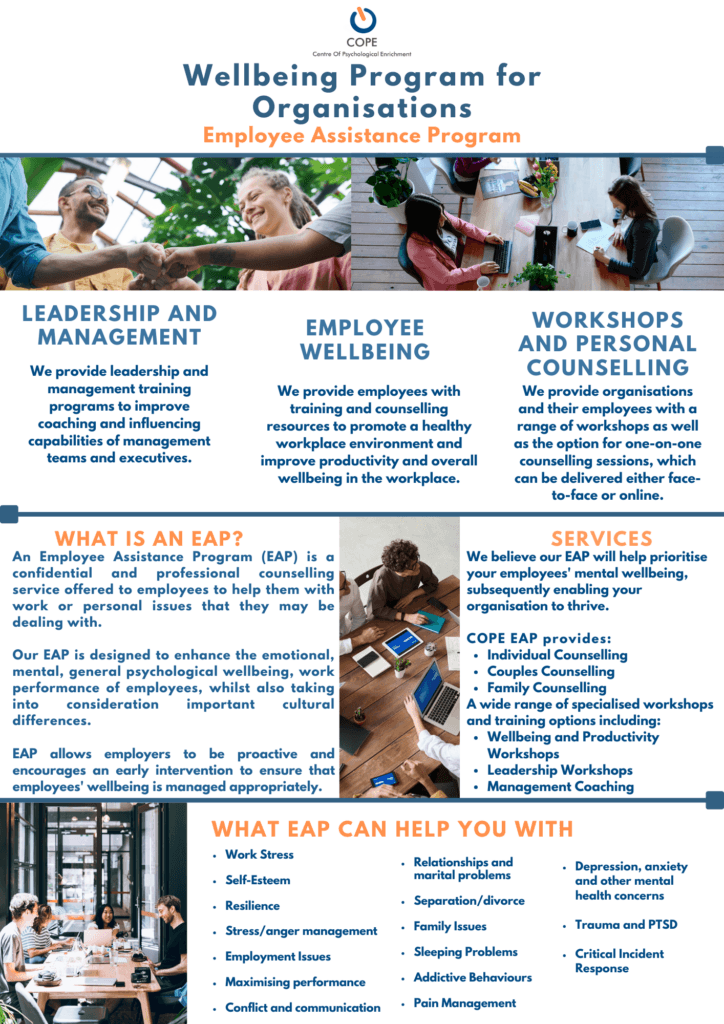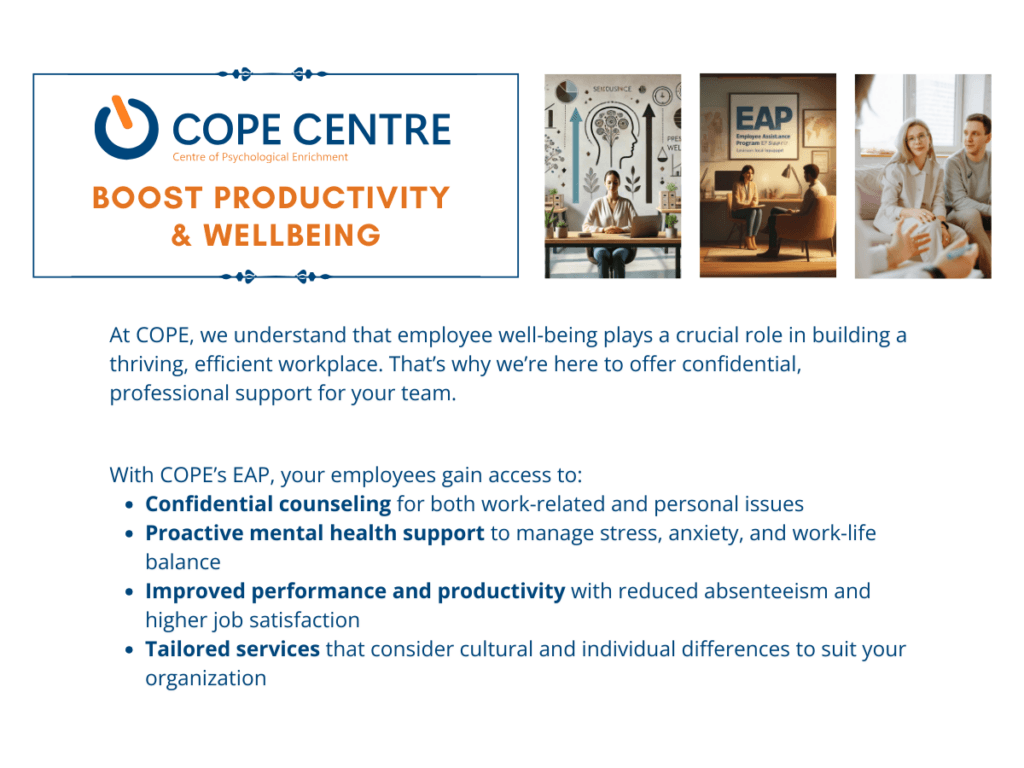Effective decision making, EAP programs can contribute to the Mental Health of an Organisation
Leaders may be best encouraged to adapt their decision-making approach to suit the situation. By mastering the art of decision-making, leaders can inspire trust, motivate their teams, and drive their organizations toward success. Your mental health would play a huge role in leadership and decision-making.

Strong team support leads to a strong leader
Our Employee Assistance Programs are specifically designed for Business Leaders. Decision-making and leadership are closely intertwined concepts that play a critical role in the success of organizations and individuals. Effective leadership requires sound decision-making skills, and the decisions leaders make can significantly impact the outcomes and direction of a group or organization.
Decision-making is the process of selecting the best course of action from a set of available options. The decision-making process typically involves identifying the problem or opportunity, gathering relevant information, generating alternatives, evaluating those alternatives, and choosing the best one. There are various decision-making styles, including autocratic (the leader makes decisions alone), democratic (group involvement in decision-making), and laissez-faire (minimal leader involvement). The choice of style can vary based on the situation and leadership approach.
Business Leaders guide and aim to influence others to achieve a common goal or vision. Effective leaders are often characterized by their ability to make informed and timely decisions, especially in complex or uncertain situations.
There are many benefits to utilizing the Employee Assistance Programs (EAP) for Business Leaders:
- Improving performance and productivity.
- Improving different leadership styles, such as transformational, transactional, and servant leadership, can influence the decision-making process within an organization.
- Improving the long-term impact of decisions on the organization’s mission, values, and sustainability.
- Improving team members or coworkers in the decision-making process can enhance commitment, creativity, and overall decision quality.

Depending on the Leadership approach, Leaders can make a mark in their organisations:
- Leaders can make decisions based on a rational analysis of data and facts, or they may rely on their intuition and experience.
- Smart leadership involves clear and transparent communication of their decisions to their team or organization, ensuring that the rationale behind the decision is understood.
- Leaders must be prepared to assess and manage risks associated with their decisions.
- Also being open to adapting their decisions when new information becomes available or when circumstances change. Continuous learning and improvement are essential.
- Taking responsibility for their decisions and the consequences they bring is critical, whether positive or negative
- Ethical decision-making is a crucial aspect of leadership. Leaders must consider the ethical implications of their decisions and act in a manner consistent with their organization’s values.
- Effective leadership involves making informed, timely, and ethical decisions that align with the organization’s goals and values.

COPE Centre of Psychological Enrichment
📞 (08) 6556 6460
📧 [email protected]